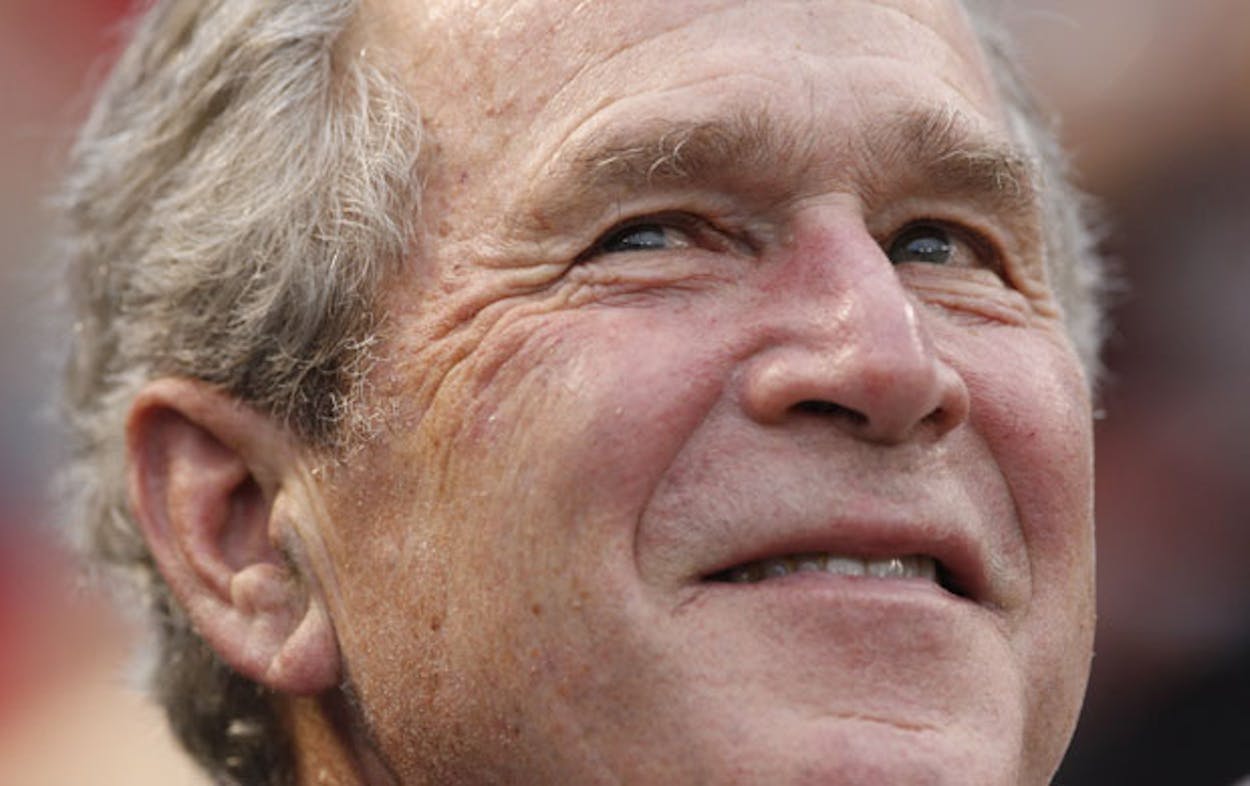George W. Bush wants you to know what he thinks about the economy. His eponymous institute is releasing a book today titled “The 4 Percent Solution: Unleashing the Economic Growth America Needs.”
The New York Times‘s Peter Baker pointed out that, until now, Bush’s “entire involvement in the presidential campaign has consisted of four words uttered to a reporter as elevator doors were closing: ‘I’m for Mitt Romney.'”
The book contains 21 essays from prominent economists who propose pushing economic growth to 4 percent per year “by restructuring taxes, expanding trade, encouraging innovation, fixing immigration and overhauling Social Security.” GDP growth is currently below 2 percent per year and has averaged 3.2 percent since 1948, according to Baker.
Bush only wrote the book’s foreword. “While the causes of the 2008 crisis will be debated by scholars for decades to come, we can all agree that excessive risk-taking by financial institutions, irresponsible decisions by lenders and borrowers, and market-distorting government policies all played a role,” Bush wrote. “The question now is which policies we should adopt to fix the problems, speed the recovery, and lay the foundation for another long, steady expansion.”
Bush was president during two downturns, the mild one in 2001 and the Great Recession, which lasted from late 2007 to mid 2009, according to the AP. The book, which Baker dubs “a wonky paean to free enterprise,” is part of Bush’s strategy to gradually reenter the limelight, Baker wrote.
At the American Prospect, Paul Waldman opined that Bush might not have all the answers:
This week will see the release of The 4% Solution: Unleashing the Economic Growth America Needs, a collection of essays from the George W. Bush Institute with a forward by the former president himself. It’s true that annual GDP growth never actually reached 4 percent during Bush’s two terms in office, and averaged only 2.4 percent even if we generously exclude the disastrous year of 2008. But look at it this way: Who knows more about what the president ought to do about the economy than Dubya does? After all, there’s only one living American (Bill Clinton) with as much experience being president, so Bush must have the answers we need.
A ridiculous argument? Of course. That’s because experience only gets you so far. It’s obviously a good thing, all else being equal, for the president to know a lot about the economy, just as it’s a good thing for him to know a lot about foreign affairs or domestic policy. But the truth is that although the government has to solve many practical problems and it’s important to have smart, knowledgeable people in government to work on them, the presidency is not a technocratic position.
But it seems like James K. Glassman, the founding executive director of the George W. Bush Institute, would disagree with that assessment. “This is not a backward-looking book. …We hope that the book will be a centerpiece of conversation and debate about economic policy in the campaign and beyond.”







